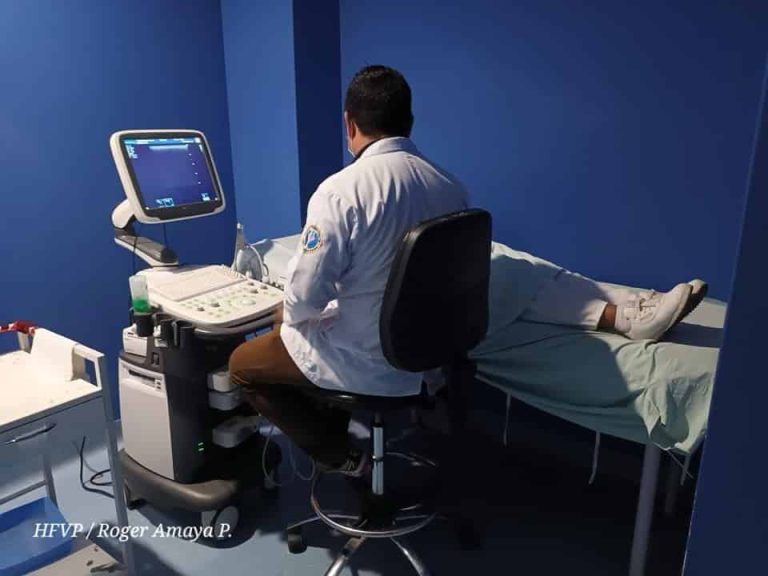2 de abril 2024

Children of Exile: The Births “Sowing Hope” in the Camp of Nicaraguan Farmers

PUBLICIDAD 1M
PUBLICIDAD 4D
PUBLICIDAD 5D
The repealed agreement stipulated that residents had to work ten years for the government after graduation or pay over US $61,000 to be released

The new residents who began their specialty studies on April 1 would have been the ones directly affected by MINSAs abusive contract obligations. Photo of Managua’s “Fernando Velez Paiz” Hospital.
Nicaragua’s Ministry of Health (Minsa) retracted its original plans and eliminated the “agreements and contracts” clause obligating specialists graduating from their residency programs to work 10 years for the government or pay the equivalent of US $61,706.
The change was announced on April 1 by Health Minister Martha Reyes. The announcement was read during the opening ceremony of the “2024-2028 Medical-Surgical Specialty Program” promoted by Minsa and the National Autonomous University of Nicaragua (UNAN).
The backtracking “Leaves without effect and invalidated the agreements and contracts signed during the year 2024 between Minsa and the resident doctors who enter or finish this year.”
The document highlights the decision was at the request of Nicaraguan President Daniel Ortega, who it termed “the chief promoter of the process of specialization and sub-specialization for Nicaraguan doctors.”
The resolution, which Confidencial obtained a copy of, was approved at the last minute – on March 31, 2024. It was declared immediately binding.
The resolution specifies that after finishing their residency “Minsa will offer slots for specialists according to the needs of the Health Services, the number of vacancies, and the existing budgetary possibilities.” But the doctor can decide whether or not to accept the employment offers.
“The new specialist will be free to decide what to do following their completion of the specialty,” the resolution reiterates.
Similarly, they clarify that the only requirement for obtaining the specialist’s title “are the academic aspects,” and not the commitment to remain working for the public system.
The imposition of onerous measures compelling graduating specialists to commit to ten years of forced labor or an unaffordable sum of money, weren’t well received by the medical community. This forced the regime to walk the proposal back and eliminate the clause stipulating these conditions for the doctors.
“There was a lot of internal resistance, and even threats of desertion from the doctors entering the new specialty program,” a health worker who asked to remain anonymous confirmed to Confidencial.
In the document, the head of the Health Ministry repeated three times that the change was by order of Ortega.
“This rectification doesn’t surprise me. I’m pretty sure someone in Minsa will be paying the piper for this one,” another source in the medical field remarked.
Three weeks ago, Minsa announced that the 213 doctors who had been accepted for the “2024-2028 Medical-Surgical Specialty Program” would have to sign a contract obligating them to work a decade for the government or pay back 2.2 million cordobas (US $61,000) in case of four eventualities:
In addition, it established that the doctors could not decide which medical unit to work in, nor in what part of the country. Instead, Minsa would send them wherever they considered it appropriate, “in accordance with the needs” of the institution.
Minsa promotes the specialty program as a “scholarship with a stipend,” since the medical residents receive a salary.
This year, the Health Ministry opened 213 slots, spread among 18 specialties: anesthesiology, general surgery, maxillofacial surgery, pediatric surgery, dermatology, physiatry (pain management and rehabilitation), gynecology and obstetrics, internal medicine, neurosurgery, ophthalmology, orthopedics and traumatology, otolaryngology, pathology, pediatrics, radiology, psychiatry, radiation oncology, and urology.
Of these 213 spots, 107 were awarded to doctors who applied directly through Minsa; 70 through the Managua branch of UNAN; and 36 to those applying through the Leon branch of UNAN. However, the official report stated that 210 residents, not 213, began their specialty studies on April 1.
This article was published in Spanish in Confidencial and translated by Havana Times. To get the most relevant news from our English coverage delivered straight to your inbox, subscribe to The Dispatch.
PUBLICIDAD 3M
Confidencial es un diario digital nicaragüense, de formato multimedia, fundado por Carlos F. Chamorro en junio de 1996. Inició como un semanario impreso y hoy es un medio de referencia regional con información, análisis, entrevistas, perfiles, reportajes e investigaciones sobre Nicaragua, informando desde el exilio por la persecución política de la dictadura de Daniel Ortega y Rosario Murillo.
PUBLICIDAD 3D